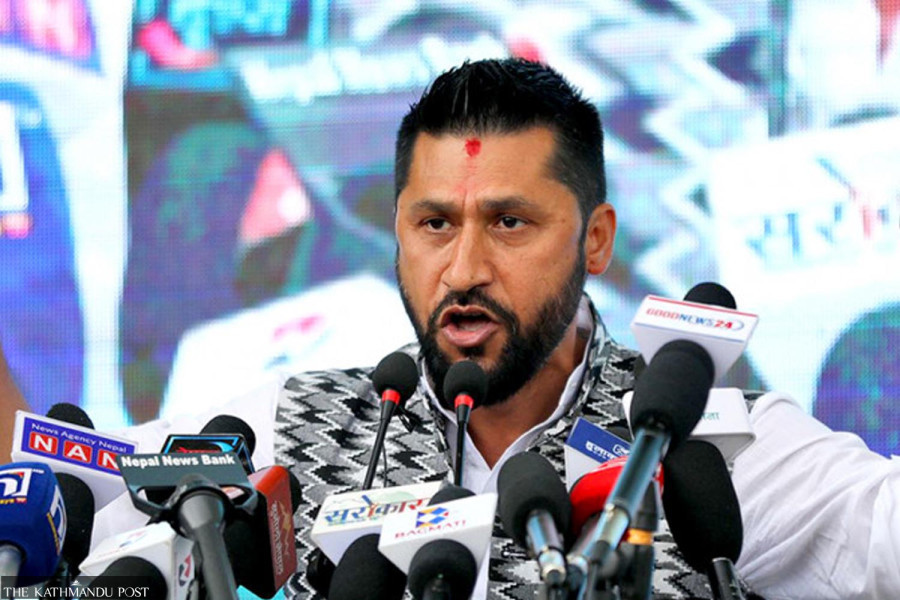Editorial
Rabi’s Freudian slip
It’s Rabi versus Rabi now, and in this duel between the two selves lies the potential loss of media freedom.
Not long ago, a very famous television journalist would scream at the top of his voice fantasising about bringing politicians to Tundikhel and breaking their noses with a flying kick. So convincing was this fantasy that even a “mahanayak” invited the presenter to a reality show and parsed the dialogue along with him. This was clearly a fetishisation of violence, and it was perhaps in view of such excesses that inspired the current Home Minister to fantasise about taking action against "rogue" journalists. But if such fantasies were to be implemented, the minister, in the spirit of fair play, would have to go back in time and have himself, or at least his past self, arrested. For, the journalist fantasising about breaking noses and the home minister fantasising about arresting journalists are one and the same—Rabi Lamichhane.
In his journalist avatar, he found it absolutely normal to incite violence in the name of free speech, an ethically inappropriate offence as per the Press Council Act. He should have been admonished by the Press Council in his journalistic heyday for speaking in a morally repugnant language. Anyone who emulates Rabi the ex-journalist should be taken care of by the Press Council and not the Home Ministry. It was by exploiting the personality of an angry young man, built over the years on the television screen that he came into politics and rose to the top. It's Rabi versus Rabi now, and in this duel between the two selves lies the potential loss of media freedom.
To breathe life into his fantasy, Lamichhane last week brought out a circular to punish media outlets and social media users publishing defamatory and baseless news and information and set up monitoring cells in all 77 districts of the country, under the chief district officers, to check media outlets publishing content that breaks social fabric. Thankfully, a few calculative minds within his party were able to convince him that his fantasy of controlling media freedom would be a roadblock for "Mission-84". Only if he could have discussed his plans with party colleagues, some of whom are fireband lawyers, libertarians and journalists who switched their professions to rally behind him, he would have spared himself the embarrassment of having to withdraw his directive in a couple of days. But before withdrawing the silly directive, Lamichhane laid bare the callousness with which Nepali politicians like himself come up with regulations. They work on the basis of their whims rather than a carefully thought-out plan. Experts do not exist for them. They have no shame in introducing silly regulations without thinking of the consequences and swiftly withdrawing them as if nothing happened.
Lamichhane's media regulation imbroglio is a case of his Freudian slip and that of politicians of his lot, for misusing power. Psychoanalyst Sigmund Freud reckons your unintentional errors reflect your subconscious feelings. Lamichhane's contempt for his past profession has been fairly evident in how he has lashed out against media houses and journalists publishing content unfavourable to him since he came into politics. Lamichhane, though, is just a symptom of a much larger malaise that afflicts the powerful but fearful lot in Nepali politics. From former King Gyanendra posting soldiers in newsrooms to former Communications Minister Gokul Banskota writing a regressive media bill, many have tried to control the media and failed. It is not for no reason that Nepali media is considered the freest in South Asia, although we have a long way to go.
The Home Minister and his ilk have no business fantasising about regulating the media. The media regulates itself based on the established norms of freedom of speech and responsibility towards society, and in extreme cases, it is monitored by a regulatory body set up exactly to do this. Others would do well to stay away.




 11.42°C Kathmandu
11.42°C Kathmandu














